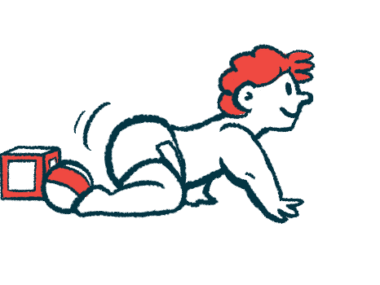Multidisciplinary Treatment Team for Infantile-Onset Pompe Disease
Written by |

If your child has been diagnosed with infantile-onset Pompe disease (IOPD), you may need a multidisciplinary team of specialists to ensure the best care possible.
IOPD causes a buildup of glycogen (a large sugar molecule that the body uses to store energy), due to a lack or low levels of the enzyme acid alpha-glucosidase. Glycogen’s accumulation can affect and damage tissues throughout the body, especially muscles, leading to a range of issues. For this reason, patients may require a diverse team of medical specialists.
The following is more information about symptoms that children with IOPD may experience, and the team of specialists who can treat them.
Neurologist/neuromuscular specialist
One of the primary symptoms of IOPD is muscle weakness and low muscle tone, and the disease is sometimes called “floppy infant syndrome.” Neurologists or neuromuscular specialists have experience dealing with diseases of the muscular system, and how to diagnose and treat issues.
Cardiologist
One of the more life-threatening symptoms of IOPD is an enlargement of the heart muscles, which can lead to heart failure. You should consult a pediatric cardiologist as early as possible, to see whether your child will need cardiac treatment. Some patients may also develop irregular heartbeats as they get older, and require cardiac monitoring.
Pulmonologist
IOPD can also affect the muscles that are important for breathing. Affected children may need a ventilator to assist with breathing. A pulmonologist should do frequent evaluations for breathing difficulties and lung infections.
Gastroenterologist
Your child may experience difficulties with feeding and swallowing. This may mean use of a feeding tube to ensure proper nutrition. A gastroenterologist can spot problems that may arise, and perform a procedure to place a feeding tube if necessary.
Audiologist
It is common for children with IOPD to experience hearing difficulties or hearing loss. An audiologist can check for hearing problems, and recommend treatment options depending on the cause.
Therapists
A number of different therapists may also assist you and your child with a variety of care and training. A physical therapist can work with your child and show you exercises that help to improve their muscle strength.
An occupational therapist may be able to provide guidance on the use of any assistive devices your child may need as they get older.
Your child may also need speech therapy, since the disease can affect the muscles of the face and jaw.
Last updated: Jan. 5, 2021
***
Pompe Disease News is strictly a news and information website about the disease. It does not provide medical advice, diagnosis or treatment. This content is not intended to be a substitute for professional medical advice, diagnosis, or treatment. Always seek the advice of your physician or other qualified health provider with any questions you may have regarding a medical condition. Never disregard professional medical advice or delay in seeking it because of something you have read on this website.


